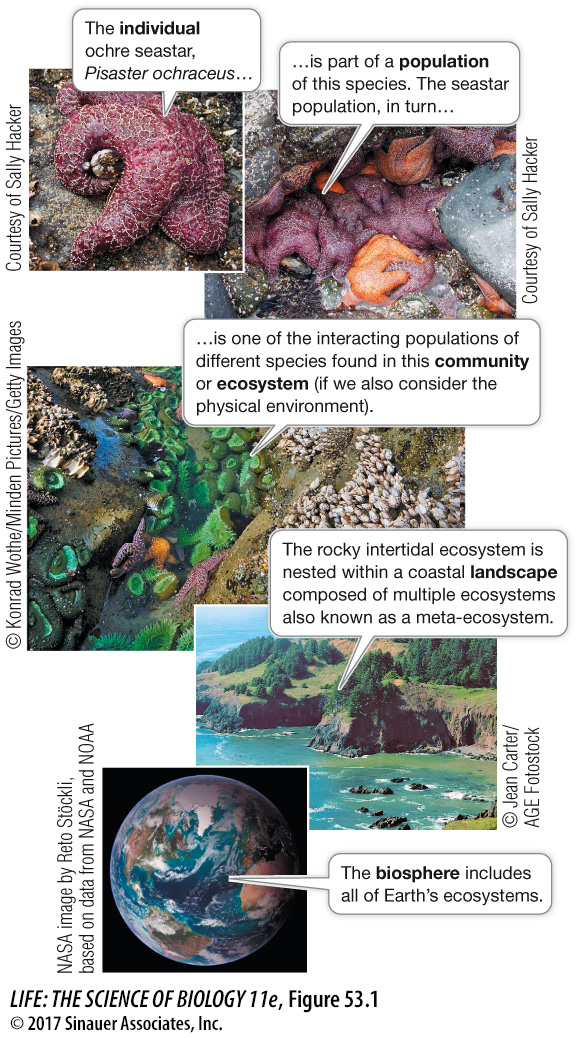Ecology is studied at many levels of organization
Ecology is studied at many levels of organization, from molecules to the entire globe. Some ecologists work at the level of genes to understand how individuals might adapt to a changing environment, while other researchers seek to understand how temperature might modify nutrient cycling at the ecosystem level. The work of ecologists focuses on many scales or levels of organization: individuals, populations, communities, ecosystems, landscapes, or the global biosphere (Figure 53.1).

As prior chapters have conveyed, a population is a group of individuals of the same species within a given area that have the potential to interbreed and interact with one another. For example, the individual seastars in Figure 53.1 make up a population at this particular rocky shore location. The seastar population in turn interacts with other species, including its prey, sessile mussels, and its competitors, whelks and other seastar species. These species form a community, which is an assemblage of interacting species living together at the same place and time.
1143
Ecological studies often encompass both the living, or biotic, and the nonliving, or abiotic, components of the environment. The biotic components of an organism’s environment are other organisms, so ecology includes the study of interactions within and among species. The abiotic components of an organism’s environment are the myriad physical and chemical characteristics of the system. For example, in the rocky shore community, tides are a key abiotic factor because they limit where seastars can feed on mussels and compete with whelks.
The term ecosystem is often used when describing a community of organisms in which their physical environment is explicitly taken into account. Ecosystem ecology particularly focuses on the movement of energy and nutrients through a group of organisms. The movement of energy and nutrients, as well as organisms, can affect higher levels of organization, including landscapes, geographic areas that include multiple ecosystems (sometimes referred to as meta-